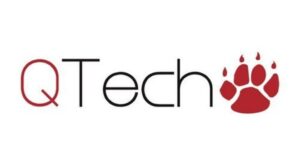Key Moments:
- The Curaçao Gaming Authority (CGA) has implemented version 2.0 of its tariff policy under the National Gambling Act (LOK)
- Licensing fees and administrative charges have remained unchanged, but a new semi-annual billing model is now in place for the first year
- Reforms aim to reinforce legal authority, modernize oversight, and enhance international credibility for Curaçao’s online gaming sector
Regulatory Clarity Following Institutional Shifts
The release of version 2.0 of the Curaçao Gaming Authority’s tariff policy marks a clear turning point for online gambling regulation. Moreover, it strengthens the jurisdiction’s push for transparency. The CGA has formally closed out the last transitional provisions of the former NOOGH framework, ending the previous licensing system entirely. These changes come after significant institutional restructuring, including the resignation of the CGA’s board and the transition of oversight responsibilities from the Ministry of Finance to the Ministry of Justice in August. Under the new structure, the CGA now holds broader legal authority. It can directly act against unlicensed operators and enforce clearer standards. In addition, regulatory leaders stress that all reforms aim to deliver modernization and long-term stability in Curaçao’s gaming market.
Semi-Annual Billing Debuts Under New Tariff Policy
Within version 2.0, a revised payment system has been introduced to support improved financial monitoring. In the first year of the National Gambling Act, licensees must make two payments — one before approval and another after six months. Subsequent years will revert billing to an annual schedule. However, the underlying fees remain the same as before.
| Fee Type | Amount |
|---|---|
| License Application (Operators & Providers) | €4,592 per application |
| B2C Annual License Fee | €47,450 (split between National Treasury levy and CGA supervisory fee) |
| B2B Annual License Fee | €24,490 |
Administrative charges for domain registration, certificate issuance, and ownership changes have not changed. Invoices must be settled within 14 days. If payment remains overdue after 71 days, the license will be revoked. The CGA also clarified that invoices alone do not renew a license. Instead, operators must receive written confirmation to validate renewal.
Bolstering Credibility and Compliance
The key goal of these tariff reforms is to create a framework defined by discipline, transparency, and predictability. Industry analysts say this approach highlights Curaçao’s commitment to stricter compliance and improved international credibility. Furthermore, it helps repair the jurisdiction’s past reputation for leniency. The implementation of a prorated fee system and elimination of obsolete transitional measures are intended to simplify compliance procedures and send a clear message to operators about Curaçao’s renewed insistence on accountability.
By introducing these measures, Curaçao is signaling its intent to build a reputation for operational order and transparency in the online gaming industry.
- Author


